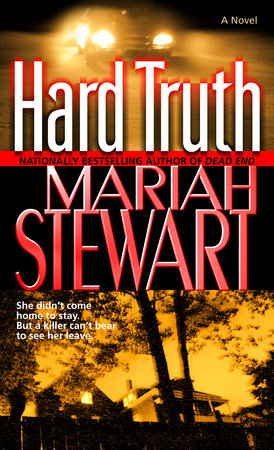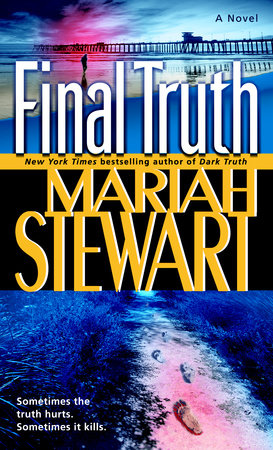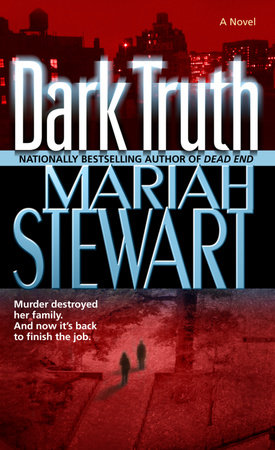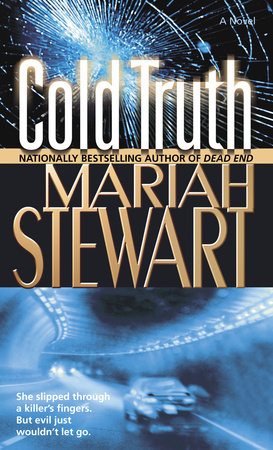Excerpt
Hard Truth
Callen, Pennsylvania
August 2005
The two-lane road meandered languidly through a countryside alive with the colors of late summer. The sun was still uncomfortably hot at four in the afternoon, hot enough that the jacket Lorna Stiles had worn when she set out that morning from Woodboro— forty miles south of Pittsburgh—had long since been removed and tossed into the backseat. At some point while traveling the Pennsylvania Turnpike, it had slid onto the floor behind the driver’s seat, but Lorna had failed to notice. There’d been plenty to think about during the drive east across the state, to her hometown of Callen. A soiled jacket was the least of her worries.
Change had been slow to come in this southernmost tip of eastern Pennsylvania, where Amish and Mennonite farms were interspersed with pricey new housing developments. The one gas station in town was now pump-your-own and was attached to a convenience store, but the stores in the little strip mall on the corner still remained closed on Sundays. While the facades remained the same, the once ramshackle old house on the opposite corner—boarded up as little as three years ago—now housed a day spa and a boutique, while its counterpart across the street had been spiffed up and turned into apartments, with the first floor converted into a bakery and coffee shop. And most noticeably, a housing development was growing in a field where corn once grew a half mile from the intersection that served as the center of town.
A sign of the times. Lorna sighed, and wondered how many other farmers had been approached by developers who wielded huge sums of cash, much more than the farms were pulling in from crops these days. Hadn’t her own mother sold off thirty acres of their land sixteen months ago to pay her medical bills?
A horn sounded behind her, urging her to make up her mind. Turn or go straight.
Lorna went straight, then pulled to the side of the road, waving the impatient driver behind her to go on his merry way. She sat for a moment and read the names on the mailboxes: Hammond, Taylor, Keeler. All names she knew well.
Veronica Hammond had been best friends with Lorna’s grandmother, Alice Palmer, and would be in her eighties now. Corrie Taylor had been one of Lorna’s field hockey teammates, and Mike Keeler had been her first love. His brother, Fritz, had taught her how to drive a pickup. Over the past month, she’d received a card or letter from each of the families, following the death of her mother.
Mrs. Hammond, in particular, had written a touching note, remembering Lorna’s mother as a young girl. “She was a lovely child, your mother was. I can still see her chasing the baby rabbits in your grandmother’s garden, holding out lettuce leaves, hoping to entice them closer. How disappointed Mary Beth would be when they ran from her—she’d only wanted to play. She was certainly Alice’s pride and joy . . .”
Making a mental note to pay a visit to the Hammond home before she left Callen for good, Lorna checked her mirrors for traffic before pulling out onto the road again. She drove another three-quarters of a mile, then slowed, her turn signal clicking away as she made a right into the wide drive.
The red brick house she’d grown up in never changed, for all of its one hundred fifty-plus years. The door was painted dark green, the shutters black. The magnolia tree she’d climbed as a child still stood in the backyard, though a lightning strike two years ago had resulted in an ugly split down the middle. Her mother would have had the tree taken down had her focus not been on other things. Like putting up a fierce fight against the disease that, in the end, took her in spite of her bravado and her most valiant efforts.
Lorna parked under the magnolia and looked through the open windows to the fields beyond the barn, which long ago had been painted white but now was weathered to a pale gray. The parcel of land her mother had sold to the developer sat at the far end of the property, so the new homes would not be visible from the farmhouse, except from the second or third floors. She wondered how many homes were being built on the land where several generations of Palmer farmers had planted every spring and harvested every fall. Maybe tomorrow she’d take a walk across the back field and see just what was what.
Her last correspondence from anyone in Callen who’d mentioned the development was a short note from Gene Enderle, who graduated from the local regional high school a few years before Lorna. He’d written her hoping she could do something to override her mother’s decision to sell the land, citing everything from concern for the wetlands to the potential for overcrowding and too many cars clogging the local roads. Lorna had called him after receiving his note, a call that had left her with the distinct impression that Gene just didn’t like change in general, and change in and around Callen in particular. Some people didn’t, but she’d been surprised to find that sort of resistance in someone so young.
Lorna was well aware that if circumstances had been different, none of the Palmer farm would have been sold. If her father hadn’t died of that heart attack eighteen years ago, for example, leaving her mother to raise and educate three kids alone. As it was, with her mother’s expenses already in excess of her insurance to the tune of one hundred thirty thousand dollars, the family really hadn’t had much choice. It was sell off some land, or her mother went without the radiation and chemotherapy her doctors had recommended.
Put in that context, no discussion had been necessary among Mary Beth’s children, other than how much land to sell off at any given time. Lorna’s younger sister, Andrea, married, the mother of two young children—she was now expecting her third—and living in Oklahoma, had left it all up to Lorna. Rob, the youngest and only boy, an aspiring actor who had left for Los Angeles the day he turned eighteen and had never come back, hadn’t bothered to respond to the several messages Lorna had left on his answering machine, which really hadn’t surprised her at all, though he’d had plenty to say about it when he came home for the small, private memorial. Once he found out how much the land could be worth, that is.
In the end, Lorna did what she felt was best for their mother. The money from the sale had given Mary Beth fifteen months of treatment in a fine hospital thirty minutes from Lorna’s house. Lorna wouldn’t have traded those fifteen months for all the Palmer land. In the end, her mother had lost the fight anyway, and the loss of a few acres was totally irrelevant, as far as Lorna was concerned.
She got out of the car, marveling at how quiet it was even for a Sunday afternoon in late summer. She inhaled deeply, recognizing the familiar smells of earth after a rain—wild roses and ripe grapes. A few daylilies were still in bloom along the fence that surrounded the field across the drive from the house, and Lorna wondered if someone had been tending them. When Lorna first moved Mary Beth to Woodboro, where Lorna’s home and business were located, she’d asked Gil Compton, a neighboring farmer, to keep an eye on the property and let her know when things needed to be done, and had offered to pay his son to mow the grass. Mr. Compton had kept the property as neat as Lorna’s father had, made sure the heating oil in the tank never ran out and the timer never failed to turn the lights on inside the house every night, but he refused every attempt she’d made to pay him for his troubles.
“No trouble at all, Lorna,” he’d insisted. “Your mother was a godsend when our oldest was in that car accident a few years back, driving my wife down to Wilmington three times a week to the hospital. If it weren’t for her, neither of us would have been there when Kevin died. Thanks to Mary Beth, at least Kim was with him at the end. So you just go on and do what you have to do for your mother, and don’t you give a second thought to what’s going on down here. I’ll take care of the farm as if it were my own.”







